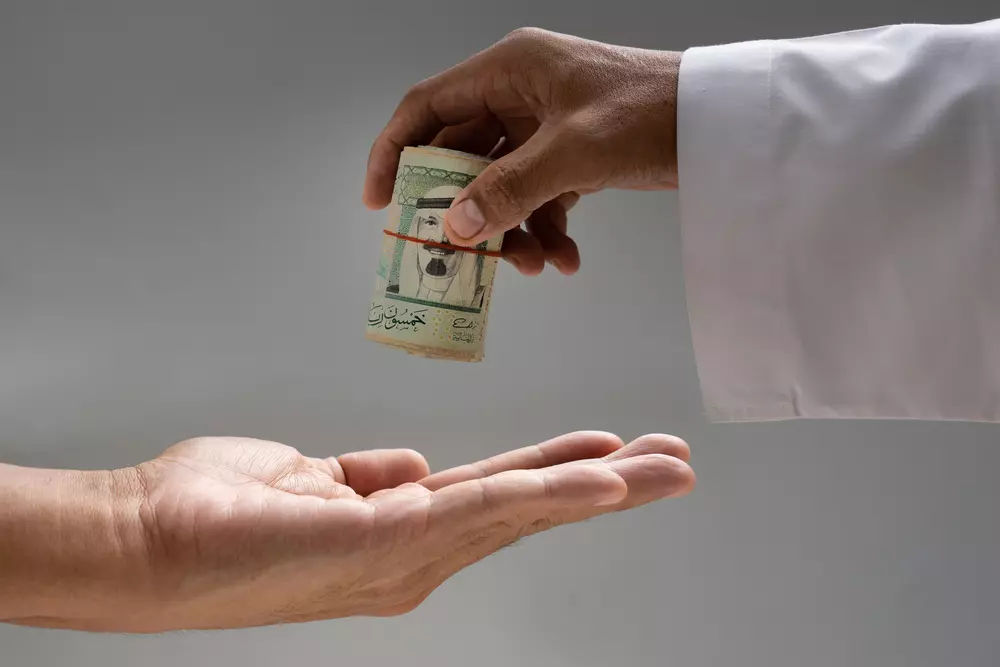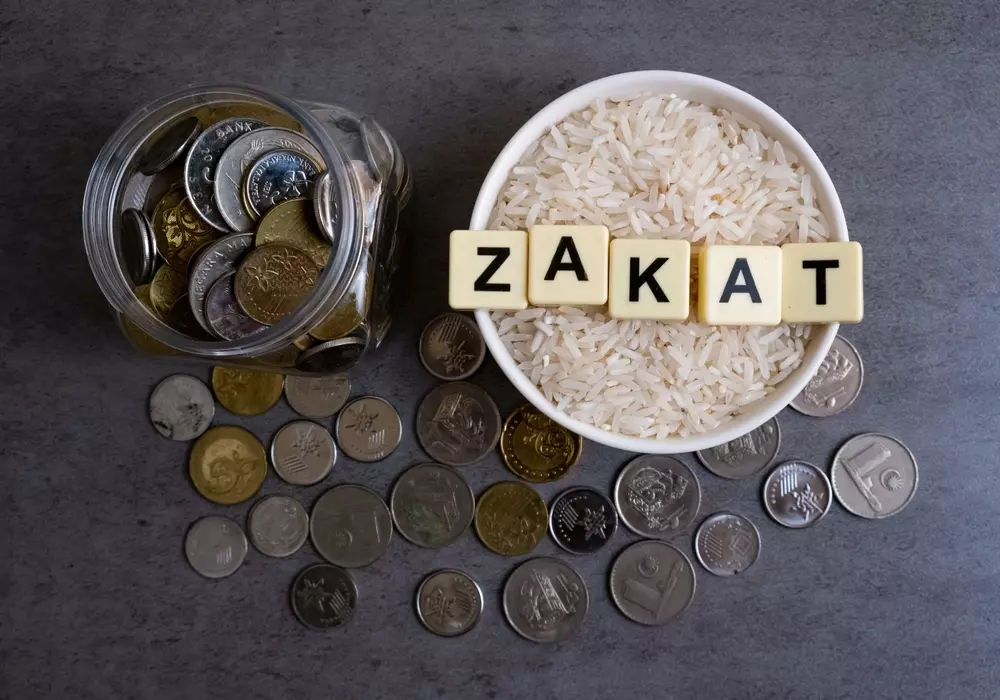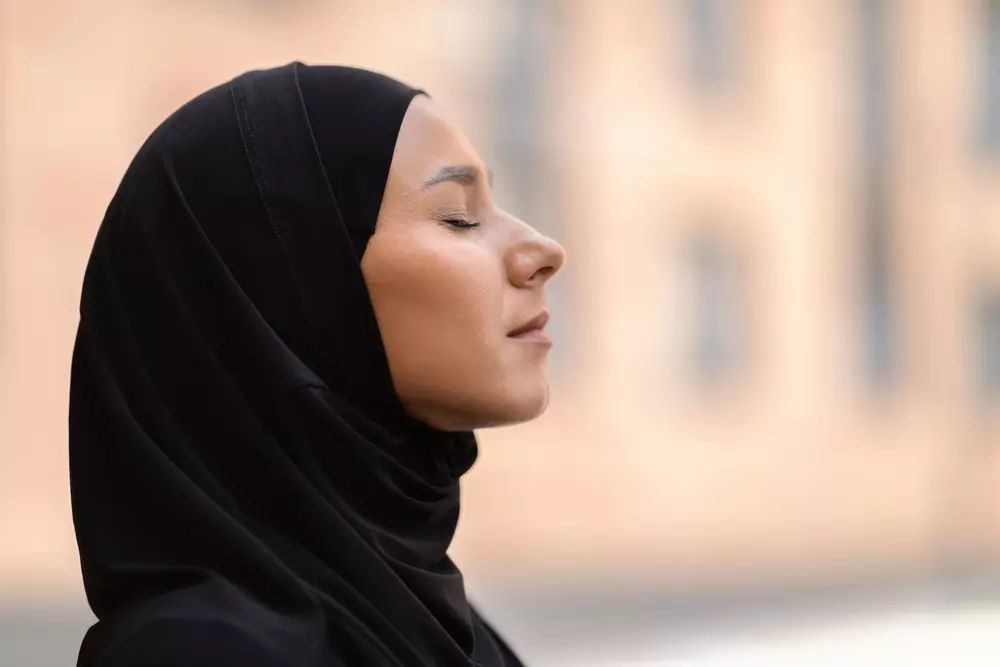Zakat is an essential aspect of the Islamic faith. Also known as Zakah, it is one of the many forms of charity that Muslims must make to help those less fortunate and also purify their wealth. Islam focuses on giving as an act of worship, putting those without basic needs first. It is a way to please Allah (SWT) and earn reward, while also helping others to build stronger communities and transform lives. Charity can also be a reminder for believers that what they have in life are blessings given by Allah (SWT) and they should be grateful for them because what He gives, He can take away. It helps them to focus less on materialistic possessions and more on their faith, connecting them closer to God. This is why Zakat is one of the five pillars of Islam, meaning Muslims must carry this act out to fulfil their religious duty.
Zakat is compulsory for all able Muslims, in order to purify their wealth and distribute it to the needy. This means that many Muslims all over the world have to carry this act out because it is their duty to their faith and cannot follow Islam accurately without making this donation. However, Zakat can be confusing to understand because there are so many rules prescribed by Islamic law that go into this type of charity. These rules are guidelines to follow for believers to correctly give their Zakat. If anything in the process of working out the donation and giving it goes wrong, then a Muslim’s Zakat can be invalid. Many people wonder who is eligible for Zakat and what the rules state before making the payment to ensure they make the donation accurately. At Charity Meals, we are here to help you fulfil your obligation correctly with this guide on Zakat common FAQs. Explore the answers that many believers are asking and gain an understanding of this important duty to help those in desperate need.
What is Zakat?
So, what is Zakat? Zakat is a compulsory act of charity in Islam that every adult Muslim who is eligible must carry out. The term means “that which purifies”, and is one of the pillars of Islam, showing just how important it is to the faith. Its aim is to share the wealth of some Muslims with those less fortunate, purifying believers' wealth and helping to transform the lives of the poor. A Muslim has to make this donation once they have met the Nisab threshold, a minimum amount of wealth that qualifies somebody to pay Zakat. This type of charity can be a very powerful tool in helping the poor and cleansing a believer’s wealth. Alongside this, Zakat can boost social welfare and bring economic balance to local communities.
Why is Zakat Important?
The reason why Zakat is important isn’t only down to one thing. There are many different reasons that make this form of charity so special and important to Muslims all over the world. A huge reason is that Zakat is a religious obligation because it is the third pillar of Islam. All five pillars are acts of worship that Muslims must follow to strengthen their faith and connect closely to Allah (SWT). Believers have a purpose in life to build their spirituality and achieve these core pillars, helping them to please Allah (SWT) and earn rewards from Him.
Another key reason is that Zakat is a powerful way for Muslims to connect to Allah (SWT) as they are carrying out an act of worship. Giving to those most in need is a highly regarded act in the faith and it has significant power for both the giver and the receiver. However, Zakat is even more powerful than any other act of charity because it purifies a Muslim’s wealth and redistributes it to the poor. So, through this virtuous act, believers strengthen their connection to Allah (SWT) and build a sense of community that strengthens the ummah (Muslim community). It’s all about spreading kindness to those who are often overlooked in daily life and helping to relieve their suffering.
What is the Nisab of Zakat?
It can be difficult to know what the Nisab of Zakat is. Nisab means a threshold that determines when a Muslim has to pay Zakat. It is a minimum amount of wealth that a Muslim has to own before they can qualify to make the donation, ensuring that they have enough wealth to give to others. When a believer meets and then exceeds this threshold with their possessions, they then fall into the category of the people who are eligible to pay it. The Nisab includes a variety of possessions that a Muslim has to pay Zakat on, such as gold, silver and other properties that earn money. The threshold also takes into account a Muslim’s disposable income, excluding bills and everyday payments that need to be made.
Once a believer has exceeded the Nisab, they must give a portion of their wealth to the needy. This is a fixed percentage of 2.5% of a Muslim’s wealth, and they must have held this wealth for a full Islamic year. If someone exceeds the Nisab and then their wealth drops below it during the year, they won’t have to make the donation. If they lose the wealth and regain it in the same year, a believer must check with their local mosque to see if they are required to pay Zakat. This system means that Zakat is fair because it takes into consideration a Muslim’s current situation when it comes time to pay it and not their situation before a full lunar year has passed. As well as this, the amount someone pays all depends on the type of wealth they possess and how much wealth they have.
Who is Eligible for Zakat?
The rules that state who is eligible for Zakat and who isn’t can be another very confusing aspect of this donation. It is essential for a Muslim to know when they are eligible to perform this good deed to be able to fulfil their obligation and do so correctly. These Islamic rules can be found in the Quran, which state that a person who is eligible to give Zakat should be:
- Of the Muslim faith
- Of sound mind
- Free and not enslaved
- Possess wealth above the Nisab threshold
- Hold a positive cash flow or sufficient assets
- Past the age of puberty.
Who Can Receive Zakat?
There are even Islamic rules to outline who can receive Zakat, which highlight the people the donations can go to. These people get to receive a portion of someone else’s wealth to redistribute it and bring people from each end of the wealth divide together. The people who can receive this are:
- Al-fuqara (the poor) – Those with little to no income.
- Miskin (the hungry) – Those who struggle to feed themselves.
- Ibnus Sabil (travellers facing hardships) – Those who are travelling and facing difficulties or struggling.
- Gharmin (those in debt) – People who are struggling to pay legitimate debts.
- Riqab (those in captivity or slavery) – Captives and enslaved people.
- Muallaf (new Muslims and friends of the Muslim community) – People who have recently embraced Islam or who support the Muslim community.
- Fisabilillah (those fighting in the path of Allah (SWT)) – For people who are fighting causes that align with Islamic principles.
- Amil (administrators of Zakat) – Those who are responsible for collecting and distributing Zakat.
Can You Give Zakat to Family?
With the Islamic rules outlining who can receive Zakat, a common question that arises for many is Can you give Zakat to family? Islamic guidelines have stated that it is permissible to give your Zakat to some family members, but only if they meet the criteria that state who can receive the donation. However, this doesn’t include any family member because there are some members of the family that you cannot donate to. The family members you can’t give Zakat to are those who don’t fall into the categories of those who can receive it and those that you are already obliged to provide for. So, due to this, it is deemed that a husband cannot give Zakat to his wife, and he also cannot give to his parents or dependent children (young children). However, a wife can give Zakat to her husband because she isn’t obliged to provide for him, as long as if that money isn’t used to benefit her in any way.
How to Calculate Zakat
There are a lot of guidelines outlining how to calculate Zakat, which all depend on the type of wealth you own. Due to this, it can be difficult to know exactly how much you need to pay when the time comes. But, don’t worry, as we are here to help make your Zakat accurate and to work out how much you should pay more easily. Once you have worked out the amount you need to donate, the best way to ensure your money reaches those in desperate need is to pay online through a charitable organisation, like Charity Meals. We will collect and distribute your Zakat for you, reaching extremely vulnerable communities and providing them with the basic necessities that they can’t afford to transform their lives and bring hope for a better life.
It is important to know that when you calculate your Zakat, you will never be donating the same amount every year because it is not set in stone. Zakat is based on your excess wealth and is only a portion of this amount, accounting for 2.5% of your total assets that are above the Nisab threshold.
Assets that are included to pay Zakat on can be:
- Savings for specific purposes
- Business stocks, shares and outstanding owed money
- Cash in bank accounts or at home
- Saved rental income
- Held gold, silver and stocks.
Another essential aspect of Zakat to understand is that the payment takes into account any short-term liabilities that must be paid. These are payments like, monthly bills, rent/mortgage and personal loans, and are excluded from your wealth that you need to pay Zakat on. This is also the same for possessions that are deemed necessary for living, such as your home or vehicle, as these are necessities for you to live your life.
You will need to work out 2.5% of the eligible wealth you own and create a total amount that includes every type of wealth you have that exceeds the Nisab. You will also need to own 87.48 grams of gold and 612.36 grams of silver for you to be eligible to pay Zakat. To help you work out your donation accurately, we have a simple Zakat calculator that makes it so much easier to fulfil your duty.
When Do You Pay Zakat?
The Zakat payment is very flexible because there is no set date by which your donation has to be paid. It is a donation that is due annually once a Muslim owns wealth that exceeds the Nisab threshold and has held that wealth for one full Islamic lunar year. If a believer doesn’t have this wealth or hasn’t held it for a full year, they don’t need to pay Zakat. Because of this, it means that a Muslim can pay their Zakat at any time after they have held the wealth for a lunar year. Many Muslims prefer to give their Zakat during Ramadan, especially during Laylat al-Qadr (the night of power), to earn the added blessing of giving to the poor. No matter when a Muslim pays their Zakat, the percentage of their earnings that they must give remains the same throughout the year.
Give Your Zakat to Charity Meals & Help Those in Need
Your Zakat has the power to transform lives and bring hope to those in desperate need. You can provide nutritious meals to those who are struggling to feed themselves and their families, as well as vital basic necessities that they can’t afford. When you give your Zakat to us, we will ensure that your donation gets to those most in need as quickly as possible, bringing hope and nourishment to the needy. You can have the power to combat hunger and improve wellbeing across the globe. Donate Zakat today and help us with our mission in transforming vulnerable communities’ lives.



